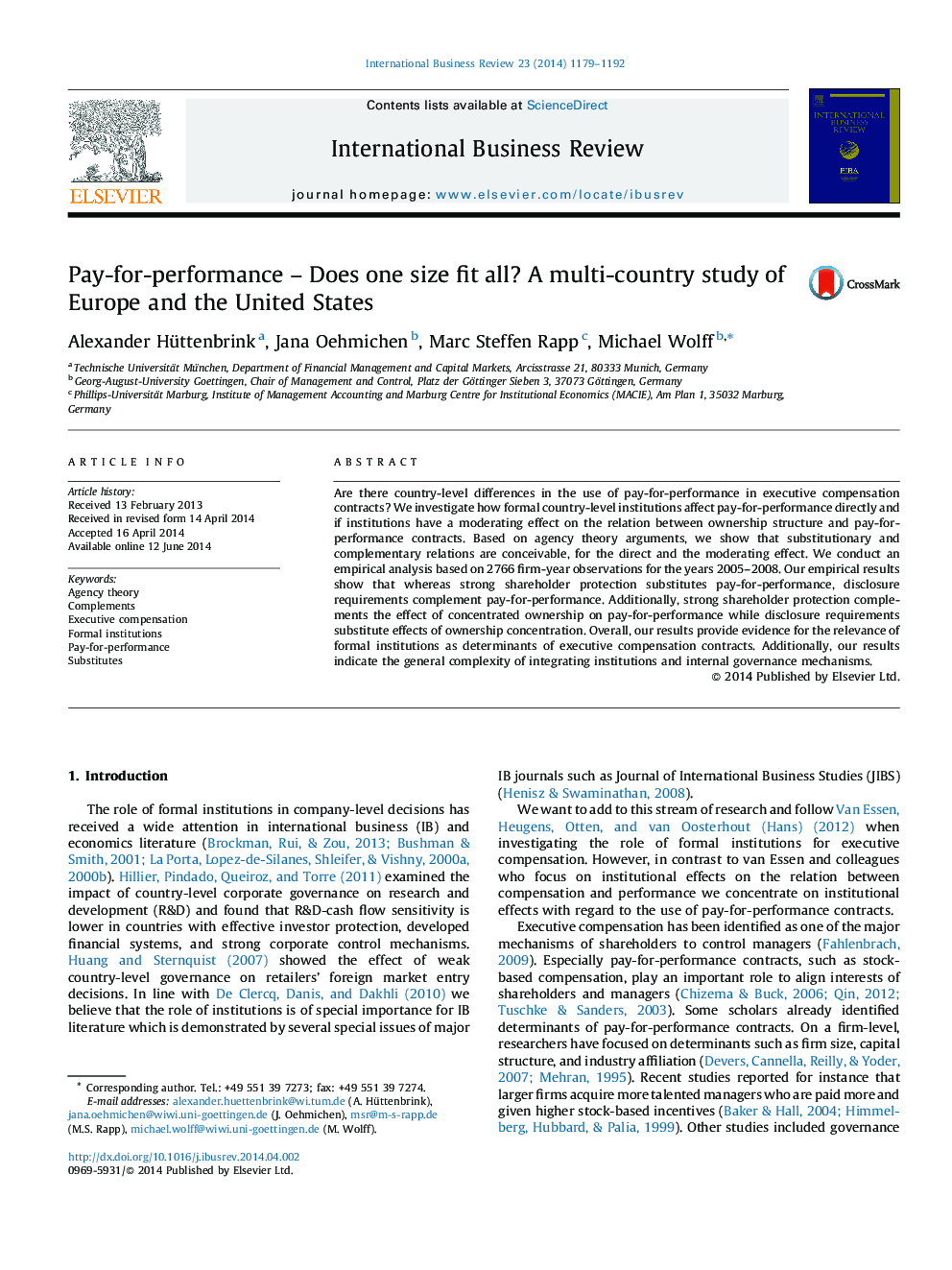| Article ID | Journal | Published Year | Pages | File Type |
|---|---|---|---|---|
| 1002436 | International Business Review | 2014 | 14 Pages |
•Countries’ formal institutions have an effect on executives’ pay-for-performance.•Strong country-level shareholder protection substitutes pay-for-performance.•Strong country-level disclosure requirements complement pay-for-performance.•Shareholder protection complements ownership effects on pay-for-performance.•Disclosure requirements substitute ownership effects on pay-for-performance.
Are there country-level differences in the use of pay-for-performance in executive compensation contracts? We investigate how formal country-level institutions affect pay-for-performance directly and if institutions have a moderating effect on the relation between ownership structure and pay-for-performance contracts. Based on agency theory arguments, we show that substitutionary and complementary relations are conceivable, for the direct and the moderating effect. We conduct an empirical analysis based on 2766 firm-year observations for the years 2005–2008. Our empirical results show that whereas strong shareholder protection substitutes pay-for-performance, disclosure requirements complement pay-for-performance. Additionally, strong shareholder protection complements the effect of concentrated ownership on pay-for-performance while disclosure requirements substitute effects of ownership concentration. Overall, our results provide evidence for the relevance of formal institutions as determinants of executive compensation contracts. Additionally, our results indicate the general complexity of integrating institutions and internal governance mechanisms.
